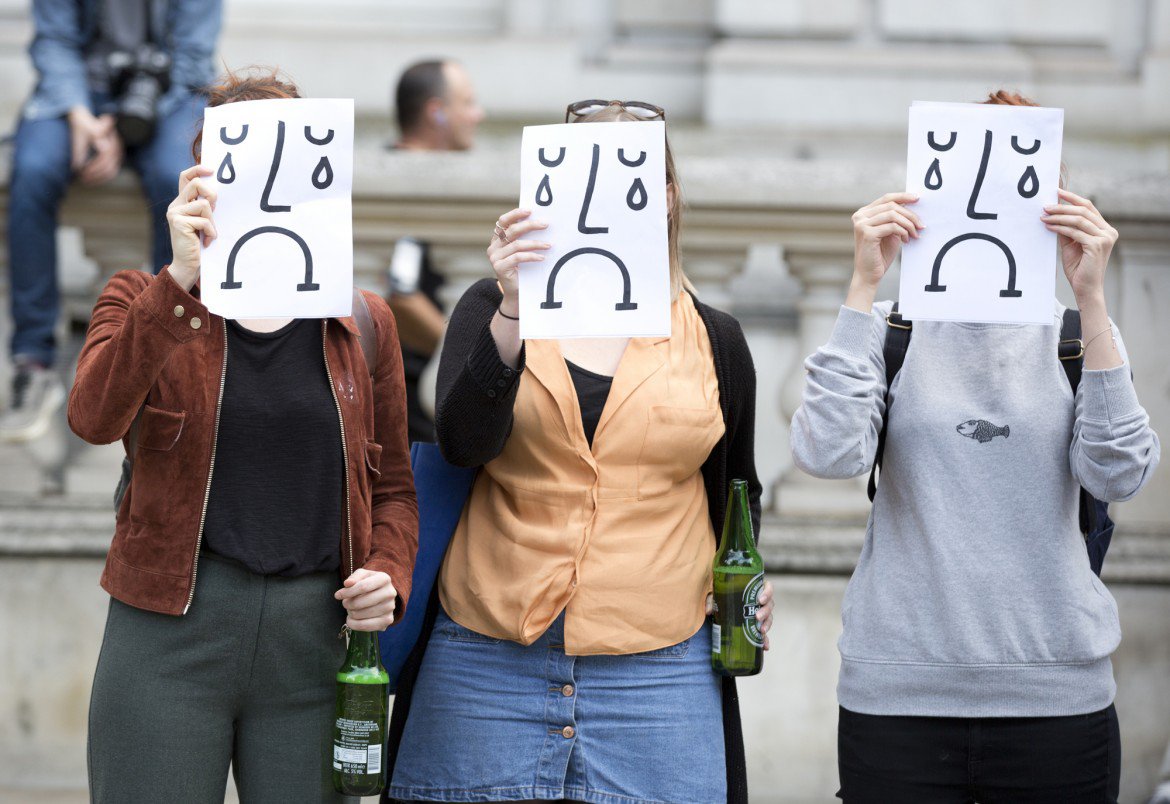Brexit
Scotland moves to remain as Europe moves to stymie British regret
Nearly 4 million people have signed a petition asking British Parliament to hold a second referendum.

The clock on Britain’s divorce from the E.U. — the countdown till the implementation of Article 50, regulating union departures — has already started ticking wildly. Almost disrespectfully, foreign ministers from all over the continent have warned the “plague spreader” to leave quickly before infecting the rest of the E.U., in a sudden move tempered only by Angela Merkel’s invitation to avoid rushed tones and harsh or punishing attitudes in regard to this not-quite-consensual separation.
In spite of this, Lord Jonathan Hill, the European British Commissioner, the highest representative at the E.U., although highlighting his own regret for the decision taken by the British people, has resigned from the Juncker commission, saying: “What’s done, is done.”
That’s not what nearly 4 million Britons are saying, however, in a petition asking for a second referendum, which on Friday crashed the government’s website. The petition textually says: “We the undersigned call upon HM Government to implement a rule that if the remain or leave vote is less than 60 percent based a turnout less than 75 percent there should be another referendum.” The minimum threshold of signatures for a campaign to be taken into consideration by the parliament is 100,000.
Hill’s departure, which, only a few weeks ago, would have been a shocker is, now, just the collateral effect of a chain reaction triggered Friday morning after Leave’s victory left David Cameron resigning and teary eyed.
At the same time, on the Change.org website, another 175,000 people signed a request for Sadiq Khan, London’s mayor, to declare the city independent from the United Kingdom and to re-enter in the European Union. These are two developments which, until recently, might have filled the pages of a sci-fi politics novel and which suddenly transmute Britain from Great to Little.
Which gives the idea of general dismay, especially among the younger metropolitan and globalized generations, whose insufficient presence at the ballots is, probably, among the causes for the small margin by which Remain was defeated. In an allocation which reflects pretty much the vote’s geographic distribution, most of the signatories comes from the country’s metropolitan areas, especially from London.
In the meantime, the issue of the post-Cameron era is stirring the conservatory party. In his press conference beside Michael Gove, Boris Johnson, besieged in front of his London domicile by a hostile mob in a strange triumph in the wrong place, looked like someone who knew he did something bad. He commented on the victory with a subdued and very serious tone, in a performance light years away from those for which he is famous and loved by conservatory voters. Maybe he’s thinking about the misunderstanding that will expose him to the shame of those voting to leave, who were led by Nigel Farage into believing that victory would have fully interrupted the migration flow in the country: something which, of course, is impossible.
The Tories who aren’t members of his fan club and who are afraid of letting him lead the country in a similar moment, are considering supporting Theresa May, the minister for internal affairs.
Alongside the political turbulence, the financial turbulence continues.
Moody’s lowered the outlook on the country’s rating from stable to negative. Even Standard & Poor’s said the British Pound’s “triple A” rating is at risk.
And with respect to the Kingdom’s unity, Nicola Sturgeon, the Scottish Prime Minister, who on Friday clearly stated that a second referendum on Scottish independence is probable, said she will try to “immediately discuss” protecting Scotland’s position in the union. The majority, 62 percent, of her constituents voted to remain.
For this purpose, she also intends to lobby European diplomats in Scotland, inviting them to “informal” meetings.
Within the splintering Labour Party, Jeremy Corbyn is dealing with an internal insurgency from a few moderate backbenchers — determined as always to let escape the golden occasion of attacking the Tories in trouble — who are taking advantage of his weak performance as Remain defender.
Criticized in public at the Gay Pride march in London, which he was attending, the leader replied, “I did all that I could.”
Originally published at http://ilmanifesto.info/scozia-con-lue-trattiamo-direttamente-noi/ on 2016-06-27
